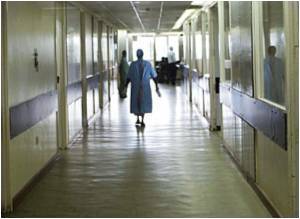The World Health Organisation on Friday called on health authorities around the globe to monitor a multi-drug resistant superbug that surfaced in South Asia and spread to Britain.

"While multi-drug resistant bacteria are not new and will continue to appear, this development requires monitoring and further study to understand the extent and modes of transmission, and to define the most effective measures for control," it added in a statement.
It underlined that the whole health care chain, including patients, hospitals, governments, laboratories, pharmaceutical firms and vetenarians, had "to be alert to the problem of antimicrobial resistance and take appropriate action."
Multi-drug resistant bacteria generally "constitute a growing and global public health problem," the UN health agency noted.
It underlined the value of hospital infection control measures to limit the spread of such resistant strains and prudent use of antibiotics to reduce the generation of resistant bacteria.
Rigorous use of such measures, including extensive hand washing in health care facilities, had proved successful in controlling multidrug-resistant bacteria in many countries, according to the global health watchdog.
Advertisement
The Lancet study said plastic surgery patients had carried a new class of superbug from South Asia to Britain.
Advertisement










